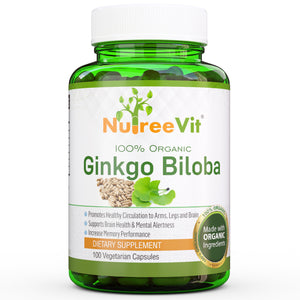Noni: The Miracle Fruit of Traditional Medicine
Noni, scientifically known as Morinda citrifolia, is a fruit that has been appreciated for centuries for its numerous health benefits. Native to Southeast Asia and the Pacific Islands, this fruit has found its place in the traditional medicine of various cultures. In this blog, we will explore the common uses of noni in medicine and how it can contribute to improving our health.
Appearance and Taste of Noni
Noni has a unique appearance, with a rough skin and a size similar to a large potato. Its taste is strong and bitter, making it unappealing to many in its natural form. However, its health benefits have led to its popularization in various forms such as juices, capsules, powders, and extracts.
Traditional Uses of Noni
-
Pain Relief and Arthritis: In traditional medicine, noni has been used as a natural analgesic. It is believed to help relieve joint and muscle pain, making it a popular remedy for arthritis and other chronic pains. Noni leaves are also applied externally on inflamed joints to alleviate pain.
-
Digestive Improvement: Noni is known for its digestive properties. It has been used to treat disorders such as constipation, indigestion, and diarrhea, helping to maintain a healthy digestive system. Additionally, it may stimulate the production of digestive enzymes, facilitating more efficient digestion.
-
Immune System Boost: The antioxidant and antimicrobial properties of noni make it ideal for boosting the immune system. Regular consumption of noni can help protect the body against infections and diseases. It has traditionally been used to treat colds, flu, and other common infections.
-
Inflammation Reduction: Noni has anti-inflammatory properties that can help reduce inflammation in the body. This is particularly useful for people suffering from chronic inflammatory conditions such as rheumatoid arthritis. It has been used both internally and externally to reduce inflammation and pain.
-
Wound Healing: Applied topically, noni can accelerate the healing of wounds, burns, and other skin problems. Its antimicrobial properties also help prevent infections. In some cultures, a paste made from the fruit or leaves of noni is applied directly to wounds to promote healing.
Modern Uses of Noni
-
Blood Sugar Regulation: Although more research is needed, some people use noni to help regulate blood sugar levels, which could be beneficial for diabetics. Preliminary studies suggest that noni may improve insulin sensitivity and help maintain stable glucose levels.
-
Cardiovascular Health: Noni is believed to help reduce cholesterol and improve overall cardiovascular health, protecting the heart and blood vessels. Its antioxidants can prevent the oxidation of LDL cholesterol, thereby reducing the risk of heart disease.
-
Anti-Cancer Properties: Preliminary research suggests that noni may have anti-cancer properties. Although this area is still under development, the initial results are promising. Compounds in noni, such as damnacanthal and anthraquinones, have shown potential in inhibiting the growth of cancer cells in laboratory studies.
-
Treatment of Respiratory Conditions: Noni has been used to treat respiratory problems such as asthma and bronchitis, thanks to its anti-inflammatory and antioxidant properties. It can help reduce inflammation in the airways, making breathing easier and relieving symptoms.
-
Energy Boost and Fatigue Reduction: Many people consume noni to increase their energy levels and combat fatigue, thereby improving their vitality and overall well-being. Noni is believed to enhance mitochondrial function, allowing for more efficient energy production in cells.
Scientific Studies and Evidence
Despite the rich history of noni use in traditional medicine, modern scientific research on its benefits is relatively new. However, several studies have begun to validate some of its properties.
A study published in the Journal of Medicinal Food found that noni juice can significantly reduce LDL cholesterol and triglyceride levels in subjects with high cholesterol levels. Another study, published in the Journal of Ethnopharmacology, demonstrated that noni extracts have anti-inflammatory and antioxidant properties.
Additionally, laboratory research has shown that noni can inhibit the growth of cancer cells in certain cell lines, although more studies are needed to confirm these effects in humans.
Precautions and Considerations
Despite its numerous benefits, it is important to consume noni with caution. In large quantities, noni can have adverse effects, especially for people with pre-existing health conditions. For example, noni contains compounds that can be hepatotoxic in very high doses, so people with liver problems should avoid excessive consumption.
Furthermore, noni can interact with certain medications, such as anticoagulants and blood pressure medications. It is always advisable to consult a healthcare professional before incorporating noni into your diet or using it as a treatment for any medical condition.
Conclusion
Noni is a fruit with a rich history in both traditional and modern medicine. Its numerous health benefits make it a valuable natural remedy for various ailments. Although its taste may not be appealing to everyone, its healing properties make it worth considering. If you decide to try noni, be sure to do so with proper guidance to maximize its benefits and minimize any potential risks.
Research on noni continues to evolve, and over time, we are likely to discover even more applications and benefits of this fascinating fruit. Until then, noni remains a testament to how nature can offer powerful solutions for our health and well-being.





